Many of the ingredients found in the insecticides, herbicides, and fungicides used for growing our foods are considered carcinogenic, which means they can cause a wide range health problems, including cancer. If you are concerned about the growing number of dangers associated with pesticides in store bought foods, you may be considering the idea of growing your own organic garden. If so, these five tips will help you be successful in your quest to find healthier food options for your family.
Organic Gardens Need Sunlight
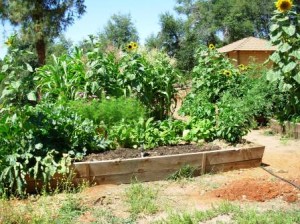 Once you have decided to grow organic, you need to make sure that the future home of your garden receives the right amount of sunlight. Healthy plants require no less than six hours of direct sunlight each day. If you do not have an area that receives this much sun, you may want to consider trimming back some of the trees and bushes that you currently have to allow for optimal levels of full sun.
Once you have decided to grow organic, you need to make sure that the future home of your garden receives the right amount of sunlight. Healthy plants require no less than six hours of direct sunlight each day. If you do not have an area that receives this much sun, you may want to consider trimming back some of the trees and bushes that you currently have to allow for optimal levels of full sun.
Avoid Plants that are Susceptible to Disease and Pests
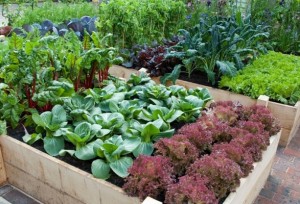 If you are new to gardening, you need to consider which plants are best for your circumstances. Even though there are many options available for organic gardens, some of them are highly susceptible to disease and pests. In order to ensure a successful organic garden, you need to take the time to find seeds and plants that are specifically labelled as disease resistant.
If you are new to gardening, you need to consider which plants are best for your circumstances. Even though there are many options available for organic gardens, some of them are highly susceptible to disease and pests. In order to ensure a successful organic garden, you need to take the time to find seeds and plants that are specifically labelled as disease resistant.
Give Your Plants Room to Grow
Even though you may be tempted to cram as many plants as possible into your garden so you can get the highest yield, this is not a good idea. Plants need room for their roots to spread, as well as plenty of air flow to ensure the best growth. When plants are too close together, it increases the chances of fungal diseases and other issues. You should try to make sure that the leaves of your plants will not overlap each other when they are full grown to ensure proper air flow.
Understand Your Soil
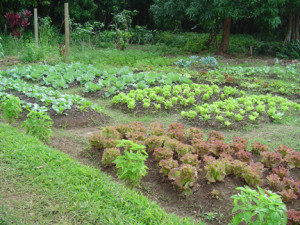 The soil in many areas does not actually require fertilizing for your plants and seeds to grow properly. However, it is no secret that fertilizers do help your plants grow faster, and yield more crops. If you already know that your soil is rich, you should consider skipping the added fertilizer – plants that grow too well tend to attract more pests, making them more likely to suffer from disease as well.
The soil in many areas does not actually require fertilizing for your plants and seeds to grow properly. However, it is no secret that fertilizers do help your plants grow faster, and yield more crops. If you already know that your soil is rich, you should consider skipping the added fertilizer – plants that grow too well tend to attract more pests, making them more likely to suffer from disease as well.
Fertilize Naturally
The point of organically grown vegetables and fruits is to avoid the addition of harmful or unwanted chemicals. If you want your crops to be truly organic, you need to use natural fertilizers. If you live in an area where farms are abundant, you can ask the local farmers if they are willing to sell or give away any extra manure from sheep, rabbits, chickens, or horses. You can also check with local garden supply stores, or even online sources that sell pre-packaged materials for organic growing.
Use Organic Mulch
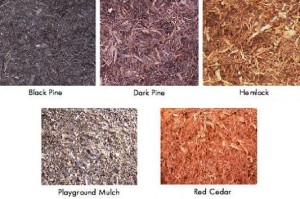 Mulch is a great way of protecting your garden from weeds, as well as fungal spores. You will want to make sure that you are choosing organic mulch, as this will help add organic fertilizers to your soil as they break down. Some popular options are weed free straw and cocoa hulls, which are often available from your local garden supply stores. Plan on purchasing enough to cover your garden in a layer that is one to two inches thick.
Mulch is a great way of protecting your garden from weeds, as well as fungal spores. You will want to make sure that you are choosing organic mulch, as this will help add organic fertilizers to your soil as they break down. Some popular options are weed free straw and cocoa hulls, which are often available from your local garden supply stores. Plan on purchasing enough to cover your garden in a layer that is one to two inches thick.
Don’t Over-water
Wet leaves that do not have time to dry before the sun goes down can become a breeding ground for disease. If you can avoid using a sprinkler, your best option for watering is a soaker hose. These hoses are specially designed to get the water directly to the roots, rather than drenching the entire plant.
Fight Weeds
You have to take the time to fight weeds to make sure that your organic garden grows properly. Weeds suck water and nutrients away from your plants, and they attract more pests and diseases than any other plant.
Keep Your Plants Clean
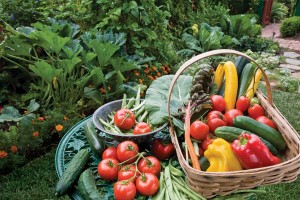 Dead foliage is a great place for diseases to grow, so make sure to clean up any fallen leaves at least once per week. While you are at it, if you notice any dead or spotted leaves on your plants, go ahead and pick them off before they fall. Throw the dead or diseased leaves in the trash so you don’t contaminate your organic materials.
Dead foliage is a great place for diseases to grow, so make sure to clean up any fallen leaves at least once per week. While you are at it, if you notice any dead or spotted leaves on your plants, go ahead and pick them off before they fall. Throw the dead or diseased leaves in the trash so you don’t contaminate your organic materials.
Enjoy Your Garden
Once your crops begin to mature and grow, you can enjoy the healthfulness of organically grown foods, without the high price tag seen in stores. You can also get your family involved so that you can all share the joy of healthier, less dangerous eating together.